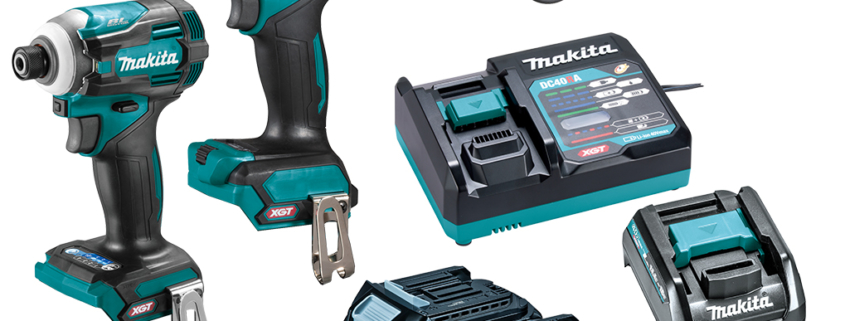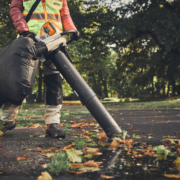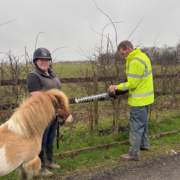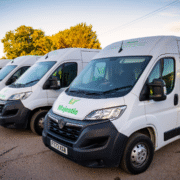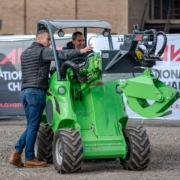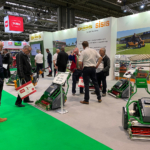Is it time to cut the cord?
With the world looking at ways to support climate change and the UK government being urged by campaigners, such as Challenge 2025 to ban all petrol-powered garden tools by 2025, companies are focusing more on the features of cordless power tools and machinery. Here Mark Earles, Business Development Manager for Outdoor Products at Makita UK, discusses how opting for cordless equipment can provide the power and run times that professionals require – and help to meet environmental objectives.
A day in the life of a landscaper is never the same and it is important for professionals to ensure they have a reliable set of tools to call upon to tackle every type of task. From soft landscaping and maintenance to hard landscaping and construction – and all the unexpected in between – getting the job done efficiently and effectively is paramount.

Is it time to cut the cord?
Power to rely on
Petrol-powered and corded products have traditionally been the go-to resource for years, but with advances in battery technology, cordless products are now growing in popularity with solutions on the market that can rival, if not improve on, the performance of their petrol or corded counterparts.
This has largely been driven by the development of brushless motor technology and by the adoption of lithium-ion batteries which have replaced the previous generations of nickel-cadmium (NiCad) and nickel metal hydride (NiMH) batteries used in power tool design and in turn, transformed the performance of cordless equipment. A key advantage is that lithium-ion batteries are more ‘energy dense’, allowing greater power and capacities to work for long periods of time without the need to recharge.
Leading manufacturers have refined battery technology further so that when the battery does need to be recharged, it can be completed as quickly as possible to reduce disruption for users. For example, Makita’s 3.0Ah 18V LXT lithium-ion batteries can be charged in as little as 22 minutes or the 6.0Ah version charges in less than an hour, and its 2.5Ah 40VMax XGT battery can be charged in just 28 minutes, however Makita now also offer XGT batteries in 4Ah, 5Ah and 8Ah options for even longer runtimes.
The open outdoors
A key benefit of using cordless tools is the freedom that users are afforded. Trailing cables and power supply or fuel needn’t be managed, and tasks can be tackled anywhere at any time – without restriction. Opting for a manufacturer that uses the same battery system for a wide range of its tools is even more advantageous, as this allows professionals to switch between tools and tasks easily, simply by swapping the battery. For example, Makita’s LXT portfolio spans over 290 cordless tools, with a solution for every eventuality on site, and includes peripheral products such as heated vests, IPX-rated radios and kettles, and the XGT range includes over 70 models for hard and soft landscaping applications.
Safety
Battery-operated tools also offer safety benefits to users, especially when it comes to cordless garden machinery. By removing cords and eliminating the need for petrol, safety risks such as trip hazards and cord entanglement are reduced. Further still, there is no need to transport or store fuel and users will not be exposed to harmful fumes.
What’s more, battery-operated are often lighter and better balanced, so users have better control – and they produce lower vibration and noise levels, so fatigue is minimised. Furthermore, cordless machines produce less noise, therefore reducing disturbance for the user and those nearby, enabling operators to work more comfortably for longer.
Environmental impact
There is of course, the environmental impact to consider. Emissions from petrol-powered garden machinery are far more toxic than battery-powered tools with research revealing shocking data that underpins the motivation to move away from petrol. For example, Challenge 2025 found that petrol-powered leaf blowers emit 11 times more carbon monoxide than an average family car.
With more focus on sustainability than ever, many professionals are now considering these issues when it comes to their choice of kit. This is becoming particularly more commonplace as a growing number of tenders now require contractors to demonstrate sustainable practices for pre-qualification.
Makita has even gone as far as to cease manufacturing petrol products and instead, concentrate its investment into cordless product development to deliver more power, longer run times and shorter charge times. Whether driven by personal choice or as a business strategy, it is clear that the move to more sustainable equipment offers a benefit for all.
To find out more about Makita and its range of products visit: www.makitauk.com. Or to book a product demonstration with Makita’s Product Specialists visit: www.makitauk.com/booking.
For the latest industry news visit landscapingmatters.co.uk/news
Get all of the big headlines, pictures, opinions and videos on stories that matter to you.
Follow us on Twitter and Instagram for fun, fresh and engaging content.
You can also find us on Facebook for more of your must-see news, features, videos and pictures from Landscaping Matters.


